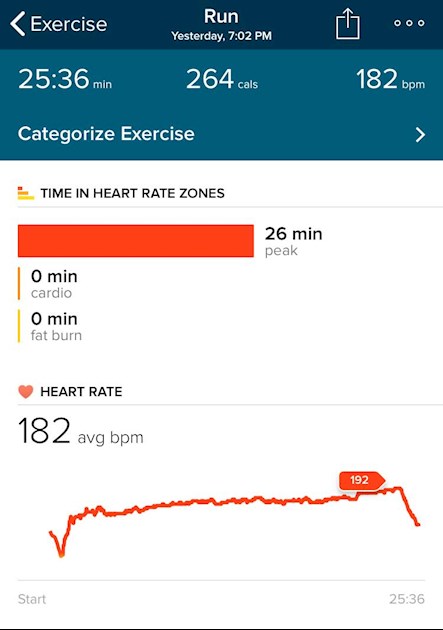Hello,
I am on week 7 of my C25K training and progressing well. I have a fitbit and noticed that when running for 20 or 25 mins at a rather slow 5mph pace, my heart rate generally stays around 182, which seems high as I am 36 and max heart rate is apparently 184 (although you can see from my screenshot that my heart rate when up to 192 when I sped up to 6mph towards the end of my run).
My resting heart rate was 66 bmp before I started a daily exercise regimen 3 months ago, and it's currently 53 bpm. Before beginning the C25K program I could not even run for 5 mins. I have no medical issues, nor am I on any meds.
If I go any slower, I'm essentially walking, so not sure what to do! Is this something to worry about? Obviously would need to consult my GP for medical advice, but wondering if you might have any thoughts on heart rate and running, especially when first starting out.
Thanks for your help 
Update:
After reading all your replies (thanks!) and doing lots more research, I have come to the following conclusions:
a) My true max heart rate is likely higher than 200, which would make 180 not quite as high as it seems.
b) speed is relative, and being new to running and fitness, even 5 mph is quite "fast" for me at the moment, which means more exertion, which means a higher heart rate than a more seasoned runner at this pace.
c) I have no reason to believe I have anything wrong with my heart, but I'm going to book myself in for a check-up, just in case (god bless the NHS!)
Thanks again xx
P
